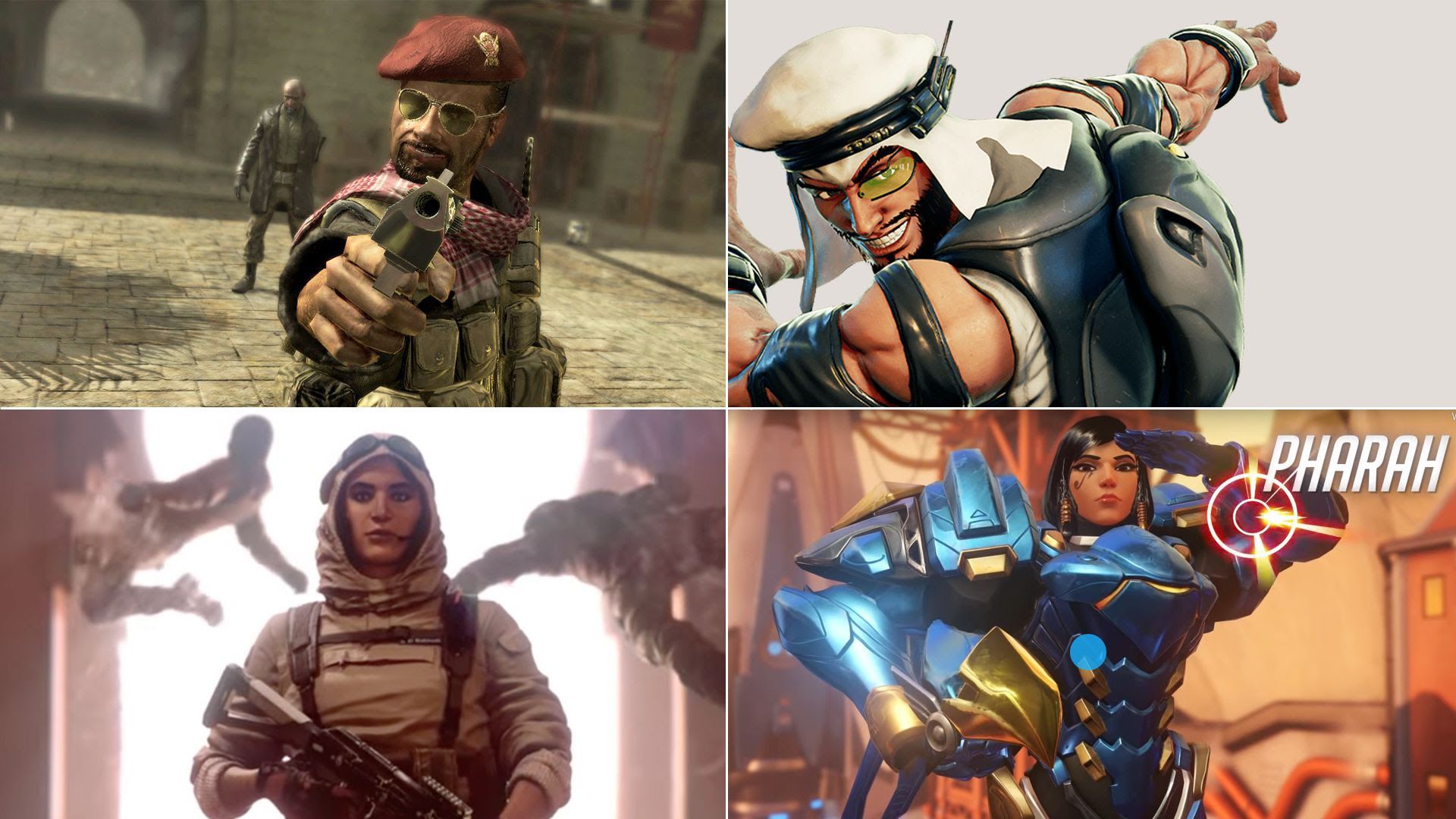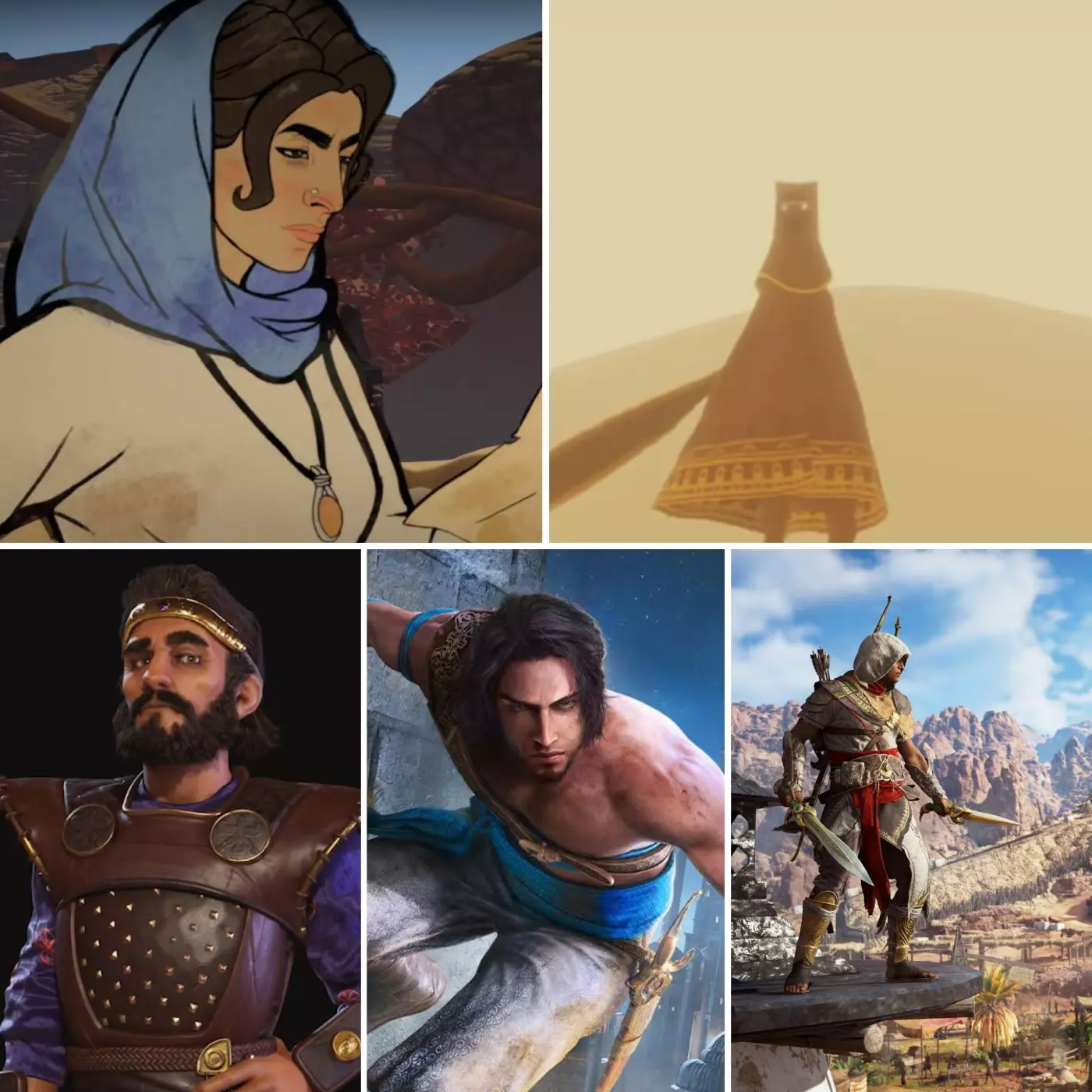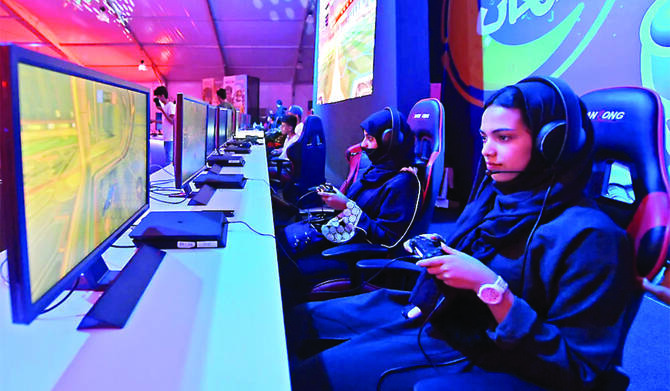Introduction
Video games are no longer just a form of entertainment; they have become an integral part of the global cultural fabric, and the Arab world is no exception. From the cafes that brought together fans of "Sakhr" and "Atari" in the 1980s to the massive esports tournaments that fill stadiums today, games have come a long way in influencing Arab youth and shaping part of their identity. In this article, we will explore how games interact with Arab culture, and how they can be a tool for either promoting or eroding local identity._
The Image of Arabs in Global Games: Between Stereotyping and Honorable Representation

For many years, the image of Arabs in global games has suffered from negative stereotyping, with Arab characters often portrayed as enemies or terrorists in war and shooting games. This negative representation has contributed to reinforcing false and harmful stereotypes in the minds of players around the world.
However, in recent years, we have begun to see a positive shift, with the emergence of more complex and diverse Arab characters in global games. Characters like "Ana" and "Farah" in Overwatch, and "Rashid" in Street Fighter V, have presented positive and different models of Arab characters, far from the traditional stereotypes. This shift reflects a growing awareness of the importance of accurate and diverse representation in games.
Games from the Heart of the Desert: When Games Are Inspired by Our Culture

In addition to representation in global games, there is a growing trend of developing games directly inspired by Arab history and heritage. Games like "Assassin's Creed Mirage," set in Baghdad during the Golden Age of Islam, and "Unearthed: Trail of Ibn Battuta," which follows in the footsteps of the famous traveler, offer players a unique opportunity to interact with their history and culture in a new and enjoyable way.
These games not only contribute to promoting pride in local identity, but also act as a cultural bridge, introducing players from all over the world to the richness and diversity of Arab culture, far from the prevailing stereotypes.
The Future of Gaming in the Arab World: From Consumption to Production

The gaming market in the Arab world is experiencing tremendous growth, and this growth is expected to continue in the coming years. This growth is not limited to the number of players, but also extends to the field of game development. With the emergence of Arab game development studios like "Tamatem Games" in Jordan and "Semaphore" in Saudi Arabia, we are beginning to see a shift from mere consumption of games to the production of content that reflects our local culture and stories.
This shift represents a great opportunity to strengthen Arab identity in the world of gaming, and to present unique stories and experiences to the world. Supporting local talent and investing in the development of Arab games is the key to building a bright future for the gaming industry in the region.
Conclusion
In conclusion, video games play a dual role in their relationship with Arab culture. On the one hand, they can be a tool for reinforcing negative stereotypes, and on the other hand, they can be a powerful means of promoting local identity and presenting an honorable image of Arab culture to the world. The future looks promising, and with the growing awareness of the importance of representation and the growth of the game development industry in the region, we can expect to see more games that celebrate our culture and heritage, and contribute to building bridges of understanding between cultures.
